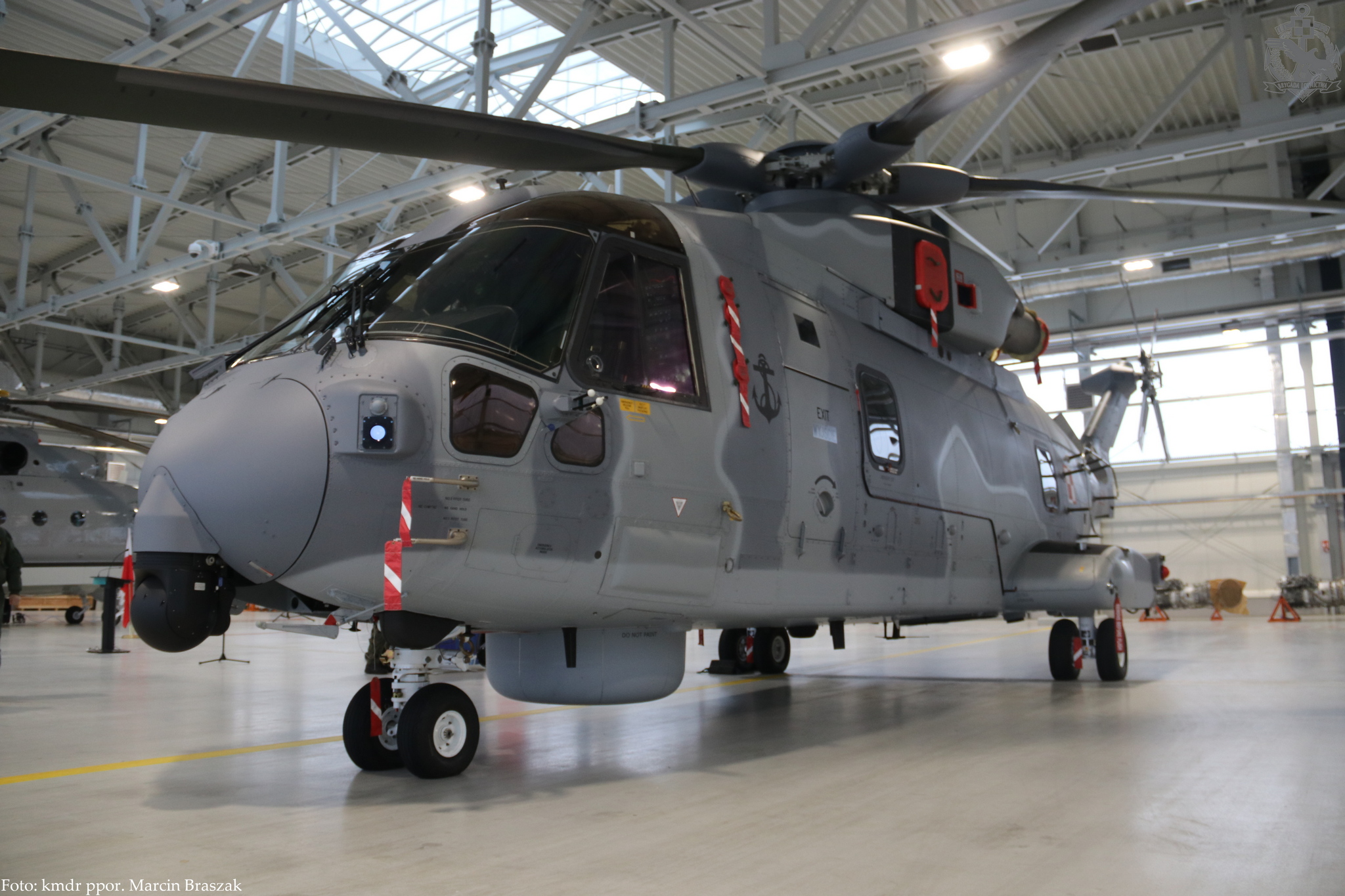On December 8, the delivery of AW101 helicopters intended for anti-submarine warfare (ZOP) began. The delivery follows an April 26, 2019 agreement worth PLN 1.65 billion (approx. $373 million—Ed.) concluded between the State Treasury – Armament Inspectorate and PZL-?widnik SA for the delivery of four AW101 helicopters, along with a logistics and training package. The logistics package includes a stock of spare and consumable parts as well as equipment for ground support of helicopters. The training package includes comprehensive training of pilots and technical staff. The AW101 helicopters will carry out anti-submarine missions in the area of responsibility of the Polish Navy and ensure the navigability of sea communication routes, protect ports and protect surface units. Equipping the helicopters with medical equipment will also enable CSAR combat search and rescue operations.
The AgustaWestland AW101 is a medium-lift helicopter in military and civil use. First flown in 1987, it was developed by a joint venture between Westland Helicopters in the United Kingdom and Agusta in Italy in response to national requirements for a modern naval utility helicopter. Several operators, including the armed forces of Britain, Denmark, and Portugal, use the name Merlin for their AW101 aircraft.[3][4] It is manufactured at factories in Yeovil, England, and Vergiate, Italy. Licensed assembly work has also taken place in Japan and the United States. Prior to 2007, the aircraft had been marketed under the designation EH101. The original designation was EHI 01, from the name given to the Anglo-Italian joint venture—European Helicopter Industries—but a transcription error changed this to EH101.

The AW101 entered into service in 1999 and has since replaced several older helicopter types, such as the Sikorsky SH-3 Sea King, performing roles such as medium-sized transport, anti-submarine warfare, search and rescue, and ship-based utility operations. The Royal Canadian Air Force (RCAF) operates the CH-149 Cormorant variant for air-sea rescue. Another variant, the Lockheed Martin VH-71 Kestrel, was produced to serve in the United States presidential transport fleet before the program was cancelled and the aircraft sold off to Canada for parts. Civil operators use the AW101 for passenger and VIP transportation. The type has been deployed to active combat theatres, such as in support of coalition forces during the Iraq War and the War in Afghanistan.
In April 2019, Poland signed a contract for four AW101 helicopters for $430 million. Originally, the Polish Navy planned to acquire eight AW101s to replace its ageing Mi-14 helicopters currently operated from Dar?owo air base. This number was reduced to four in 2018, postponing the purchase of the other four. These helicopters will be deployed in the Polish Navy, and they will be assigned to anti-submarine roles. However, when purchasing a new platform, Poland sought a multi-role helicopter. The AW101s are also equipped with combat search and rescue (CSAR) module, which means that they can also perform search and rescue missions. The AW101 is outfitted with a low-workload, NVG-compatible glass cockpit and fully integrated communications, navigation, avionics and flight and mission management systems. With the largest cabin in its class, the AW101 is able to carry up to 30 passengers and can be arranged in a variety of configurations to meet customer requirements.















